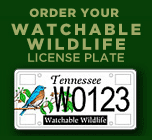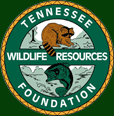Safety Tips and a Code of Ethics for Wildlife Watching Tips for safely watching wildlife during hunting seasons and year round Safety tips about snakes and poisonous plants Code of Birding Ethics Tips for safely watching wildlife during hunting seasons and year round. 1. Be respectful and courteous to hunters and other outdoor users on WMA's and other public lands. Tennessee sportsmen contribute the vast majority of TWRA's funding, which ensures the successful management of wildlife for the benefit of all Tennesseans to enjoy. 2. Be mindful of areas that allow hunting, especially on opening weekends. The best way to stay safe during hunting season is to be aware of areas where hunting is allowed during hunting seasons. Hunting is often allowed on Wildlife Management Areas (WMA), National Wildlife Refuges (NWR), and National Forests, although hunting dates vary by location, some waterfowl refuges are closed to all forms of trespass in winter, while hunting is allowed at other sites only on certain days. During hunting seasons, consider watching wildlife and hiking on trails in National Parks, State Parks, State Natural Areas, and city parks where hunting is generally not allowed. There are observations areas, viewing towers, and trails open year round on some Wildlife Management Areas. Some WMA's are closed to all uses except hunting during scheduled hunts. These closures typically occur during the peak fall hunting seasons (October - December), and spring turkey hunting season (April - mid-May). Please visit the TWRA website for the Hunting Guide with information on access dates on all WMA's. 3. Wear bright colors. If you decide to watch wildlife or hike in an area where hunters may be present, be sure to wear bright colors, especially orange and yellow (avoid white). Big game hunters, by state law, are required to wear at least 500 square inches of fluorescent orange when hunting deer, bear, which is achieved with a hat and vest. Non-hunters should follow the same rules, especially when hiking in areas when encountering hunters is possible. 4. Identify Yourself. If you see someone hunting and are not sure if they see you, make distinguishing noises only humans make. Most hunters appreciate knowing when someone else is in the area that they are hunting. While these noises might upset some hunters, safety is the most important priority for TWRA in the management of our public lands.
Safety tips about snakes and poisonous plants 1. Tennessee is home to four venomous snakes: Northern and Southern Copperhead, Timber Rattlesnake, Western Pygmy Rattlesnake, and Western Cottonmouth, but most people rarely see them. Always check before putting your hands in cracks and crevices, and practice caution when hiking in rocky areas. If you do see a snake, it is safest for you and the snake to leave it alone. 2. Learn to identify poison ivy, oak, and sumac. Wear light-colored clothing to increase your ability to spot ticks on you. Wear protection against the sun, such as lotion and a hat, to prevent sunburn. Code of Birding Ethics American Birding Association's Code of Birding Ethics Everyone who enjoys birds and birding must always respect wildlife, its environment, and the rights of others. In any conflict of interest between birds and birders, the welfare of the birds and their environment comes first. Promote the welfare of birds and their environment. 1a Support the protection of important bird habitat. 1b To avoid stressing birds or exposing them to danger, exercise restraint and caution during observation, photography, sound recording, or filming. 1c Before advertising the presence of a rare bird, evaluate the potential for disturbance to the bird, its surroundings, and other people in the area, and proceed only if access can be controlled, disturbance can be minimized, and permission has been obtained from private landowners. 1d Stay on roads, trails, and paths where they exist; otherwise keep habitat disturbance to a minimum. Respect the law and the rights of others. 2a Do not enter private property without the owner's explicit permission. 2b Follow all laws, rules, and regulations governing the use of roads and public areas. 2c Practice common courtesy when in contact with other people. Your exemplary behavior will generate goodwill with birders and non-birders alike. Ensure that feeders, nest structures, and other artificial bird environments are safe. 3a Keep dispensers, water, and food clean and free of decay or disease. It is important to feed birds continually during harsh weather. 3b Maintain and clean nest structures regularly. 3c If you are attracting birds to an area, ensure the birds are not exposed to predation from cats or other domestic animals, or dangers posed by artificial hazards. Group birding, whether organized or impromptu, requires special care. For Participants: 4a Respect the interests, rights, and skills of fellow birders as well as those of people participating in legitimate outdoor activities. Be especially helpful to beginning birders. 4b If you witness unethical birding behavior, assess the situation and intervene if you think it prudent. When interceding, inform the person(s) of the inappropriate action and attempt, within reason, to have it stopped. If behavior continues, document it and notify appropriate individuals or organizations. For Group Leaders: 4c Be an exemplary ethical role model for the group. Teach through word and example. 4d Keep group to a size that limits impact on the environment and does not interfere with others using the same area. 4e Ensure that everyone in the group knows and practices this code. 4f Learn and inform the group of any special circumstances applicable to the areas being visited (e.g., no tape recorders allowed). 4g Acknowledge that professional tour companies bear a special responsibility to place the welfare of birds and the benefits of public knowledge ahead of the company's commercial interests. Ideally, leaders should keep track of tour sightings, document unusual occurrences, and submit records to appropriate organizations.
| 
















